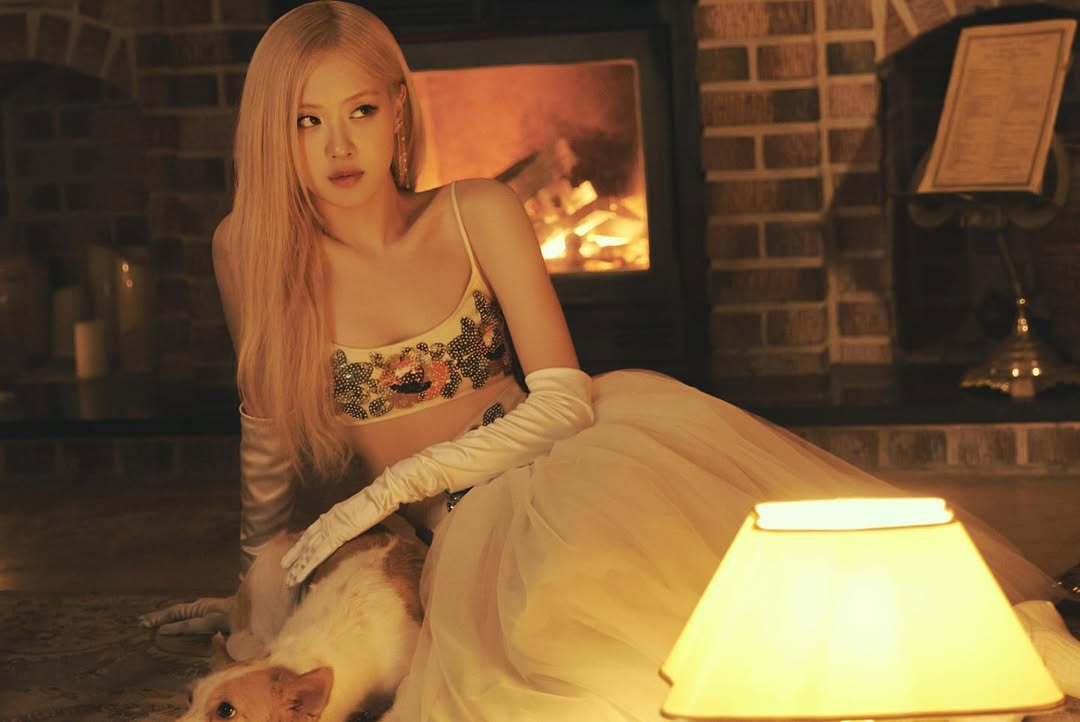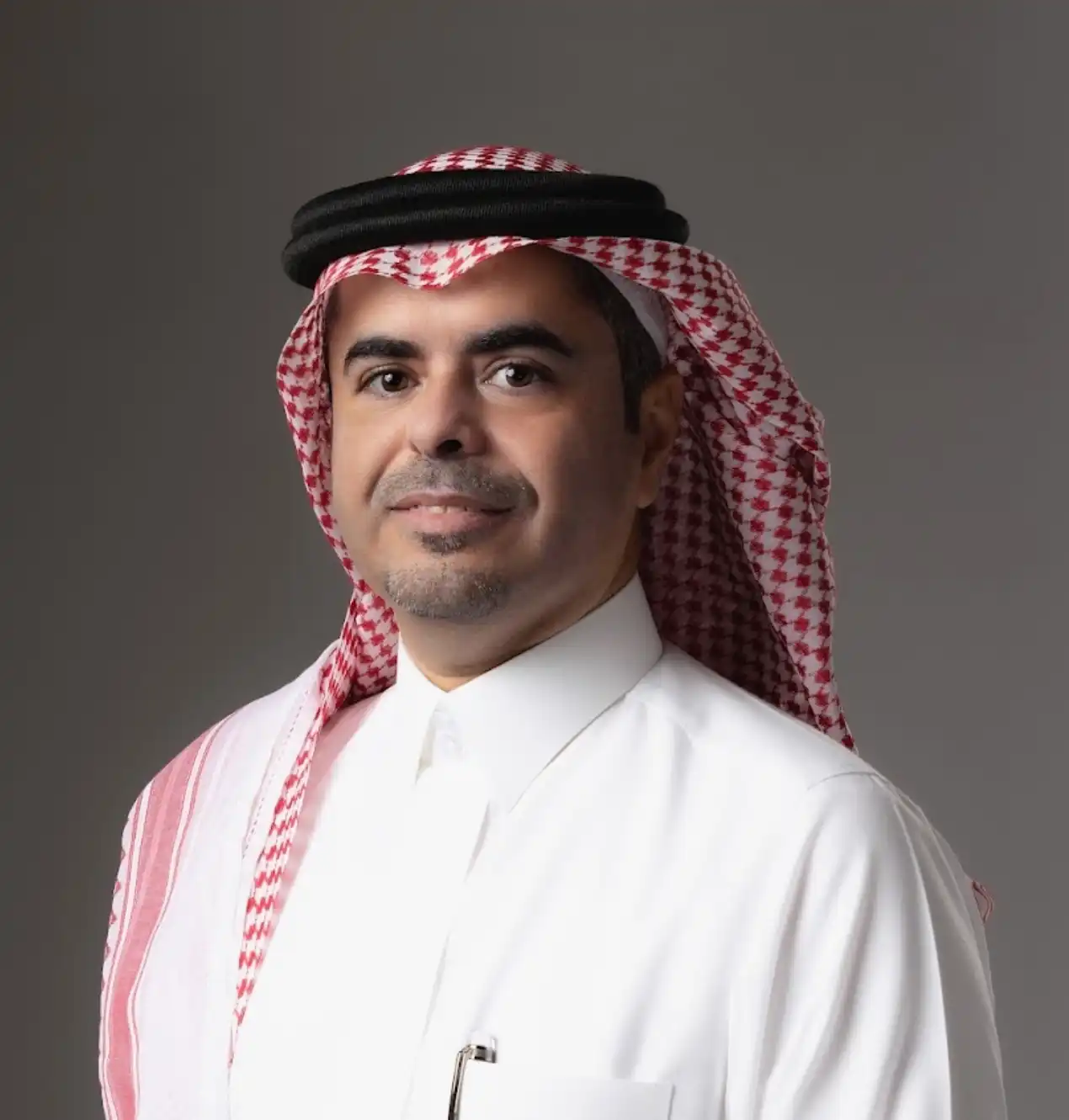The Bridge of Two Worlds
The Cultural Journey of Rosé
By Sidra Asif
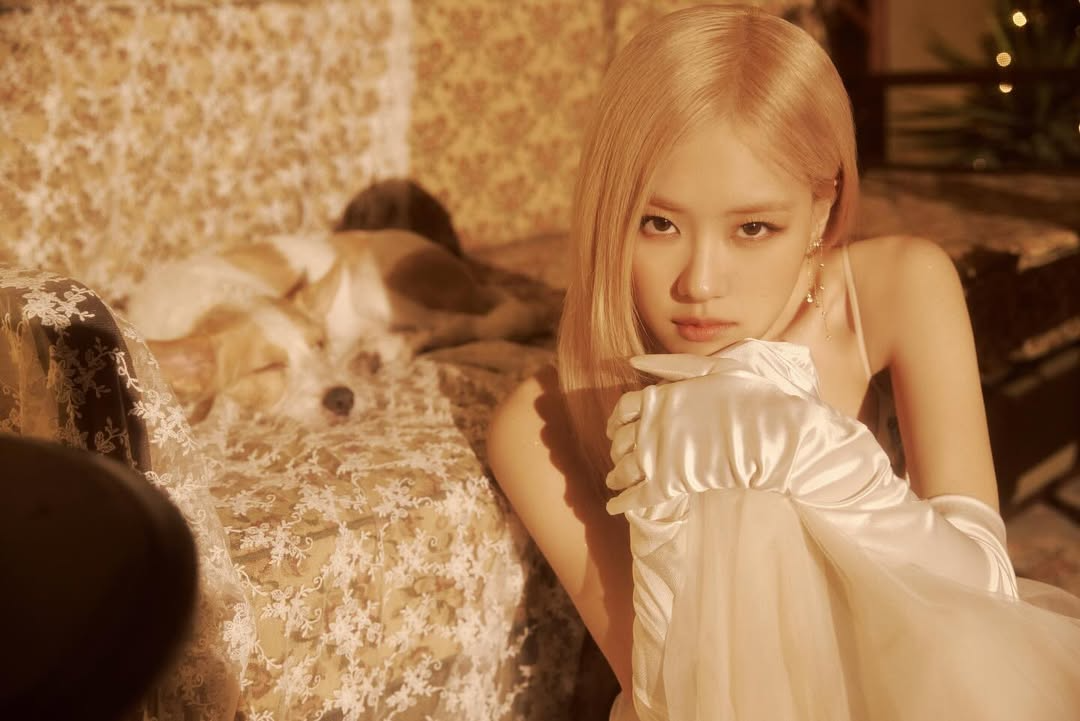
In the dazzling, often dizzying, landscape of global pop culture, few stars shine with the unique brilliance of Rosé. As the lead vocalist of the world-dominating K-pop group BLACKPINK and a solo artist breaking records in her own right, she is a musical powerhouse. Yet, beyond the powerful voice and mesmerizing stage presence lies a story of cultural duality and a personal journey that is, at its core, deeply human.
Rosé, or Park Chae-young, is a bridge between two worlds: the vibrant pop landscape of South Korea and the laid-back, sun-soaked life of New Zealand and Australia. Her narrative is not just one of global fame, but of finding her identity at the crossroads of different heritages, and in doing so, becoming a symbol for millions.
Born Roseanne Park in Auckland, New Zealand, to South Korean immigrant parents, Rosé’s life began with a foot in two very different doors. At the age of seven, her family moved to Melbourne, Australia, a city that would become the backdrop for her formative years. Here, she cultivated a love for music, learning to play the guitar and piano, and singing in church choirs.
She was a typical Australian kid with a distinctly Korean family life. This bicultural upbringing meant she navigated two languages, two sets of social norms, and two cultural identities from a young age. While her parents spoke to her in Korean, her education and social life were in English, a linguistic duality that she would later reflect on as giving her two distinct personalities. Her English voice, she once explained, felt “denser and reedier,” while her Korean voice was “softer and lighter.” This innate ability to code-switch, not just linguistically but culturally, would become her superpower.
The pivotal moment in her life came when, at her father’s suggestion, she reluctantly attended an audition for South Korean entertainment giant YG Entertainment in Sydney. It was a long shot, a chance she believed she had no business taking. She was just a teenager with a love for music, living in a country where K-pop was still a niche genre. Her father, however, saw something more. He wanted her to have a memory, to live without the regret of “what if.”
So, with her acoustic guitar in hand, she sang her heart out and, to her shock, placed first among 700 other hopefuls. Two months later, at 16, she left her comfortable life in Melbourne behind to move to Seoul.
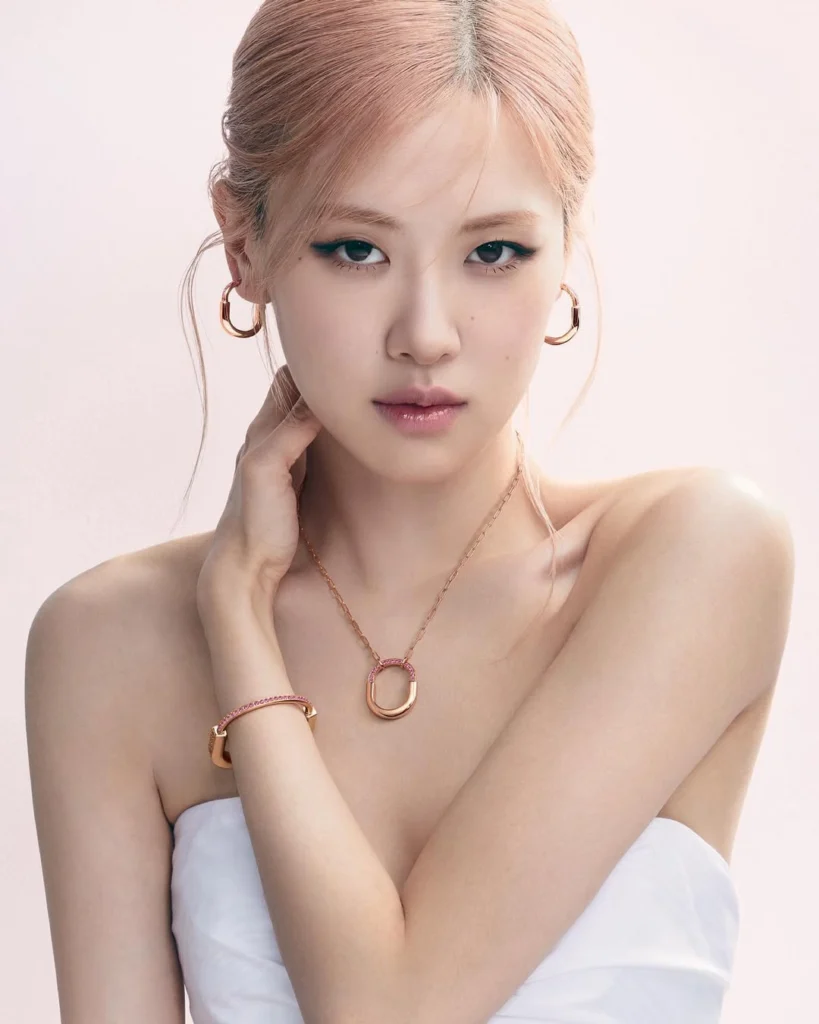
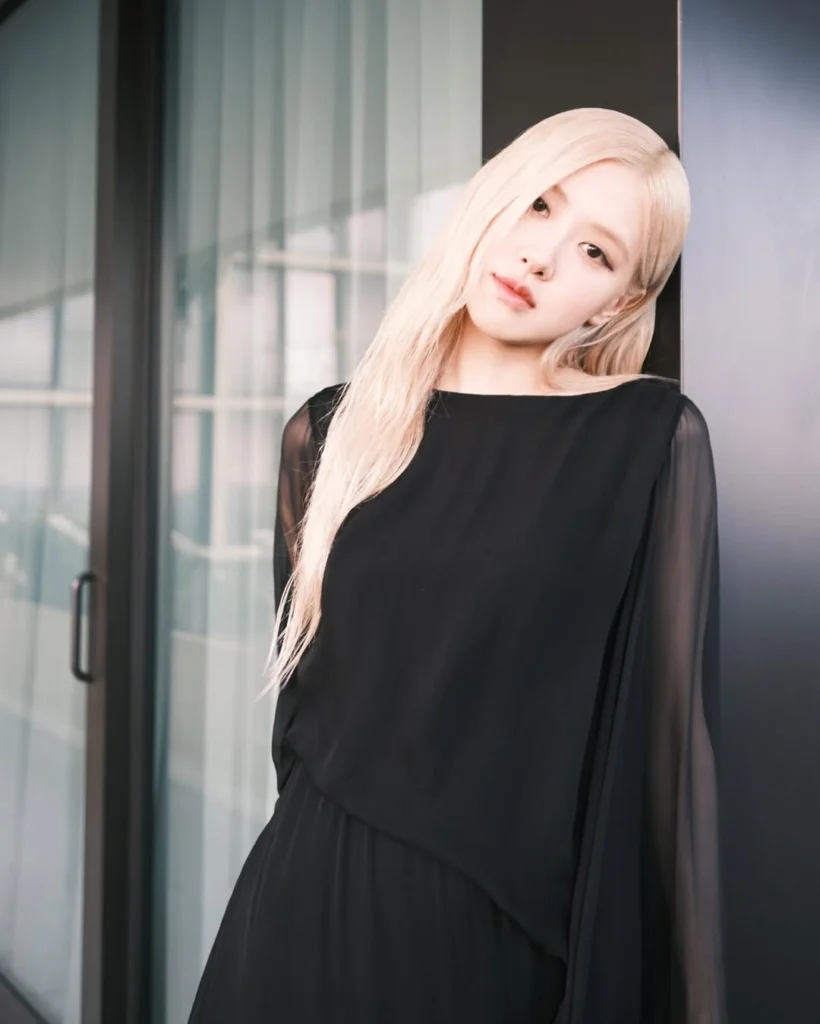
The decision was met with confusion from her friends and teachers, who couldn’t grasp why she was dropping out of school for an unknown musical path in a foreign land. This courageous leap of faith marked the beginning of her transformation from Roseanne Park, the Australian kid, to Rosé, the K-pop idol in training.
The four years she spent as a trainee were a crucible of hard work and intense discipline. She lived and trained with the other members of what would become BLACKPINK, honing her skills in singing, dancing, and performance. This rigorous system, a hallmark of the K-pop industry, is a test of passion and endurance. Rosé’s distinctive voice, a powerful, raspy tone that carries immense emotional weight, began to take shape.
It was a voice that was both a product of her Western influences and the disciplined training of the Korean system. It was this unique vocal color that captured the attention of fans worldwide when she finally debuted with BLACKPINK in 2016. The group’s instant global success was a testament to their talent and the agency’s vision, but for Rosé, it was a moment of profound personal significance.
Her dual heritage became a cornerstone of BLACKPINK’s global appeal. Along with bandmate Jennie, who also has a deep connection to New Zealand, Rosé’s fluency in English allowed the group to break international barriers and connect with a wider audience through English-language interviews and press tours. The YouTube compilations of her “Kiwi accent” are a testament to the fascination fans have with this aspect of her identity. She represents the Korean diaspora, a living embodiment of the global Korean wave.
This is perhaps what she is most proud of. In an interview, she expressed her joy and a touch of wistfulness at how much K-pop and Korean culture have become mainstream. “When I was living in Australia, K-pop was just a thing I knew about, because I was Korean,” she said.
“I think I would feel a lot more accepted knowing that everybody knows my culture so well.” Her success is not just her own; it is a shared victory for every person who has felt caught between two cultures.
As a solo artist, Rosé has further explored her cultural identity, blending her influences into a unique artistic tapestry. Her single “APT.,” a collaboration with Bruno Mars, is a perfect example of this. The song’s core concept comes from the “Apartment Game,” a Korean drinking game she taught her non-Korean friends. Seeing their joyous reaction inspired her to write a song about it.
The track became a global sensation, debuting at No. 1 on the ARIA Singles Chart and climbing the Billboard Hot 100. This achievement was not just a commercial success; it was a powerful statement about cultural exchange and the universal appeal of her personal experience. Rosé took a piece of her Korean heritage, a simple, fun game, and presented it to the world in a way that resonated universally.
Her cultural impact extends far beyond music. She has become a fashion icon, a global ambassador for luxury brands like Yves Saint Laurent and Tiffany & Co. Her influence is quantifiable; her endorsements generate millions in media value. But her power as an icon is more than just commercial. Rolling Stone named her one of the 50 living icons from Australia and New Zealand, recognizing her “unmistakable Antipodean spirit.”
Time magazine included her in it’s list of the 100 most influential people, noting her role as a pop star who is also an outspoken advocate for mental health. The First Lady of the United States, Jill Biden, praised her for using her platform as a “force for good in the world.” Rosé’s journey shows that authenticity and vulnerability, traits often associated with Western celebrity culture, can be harmonized with the humility and loyalty valued in Korean culture.
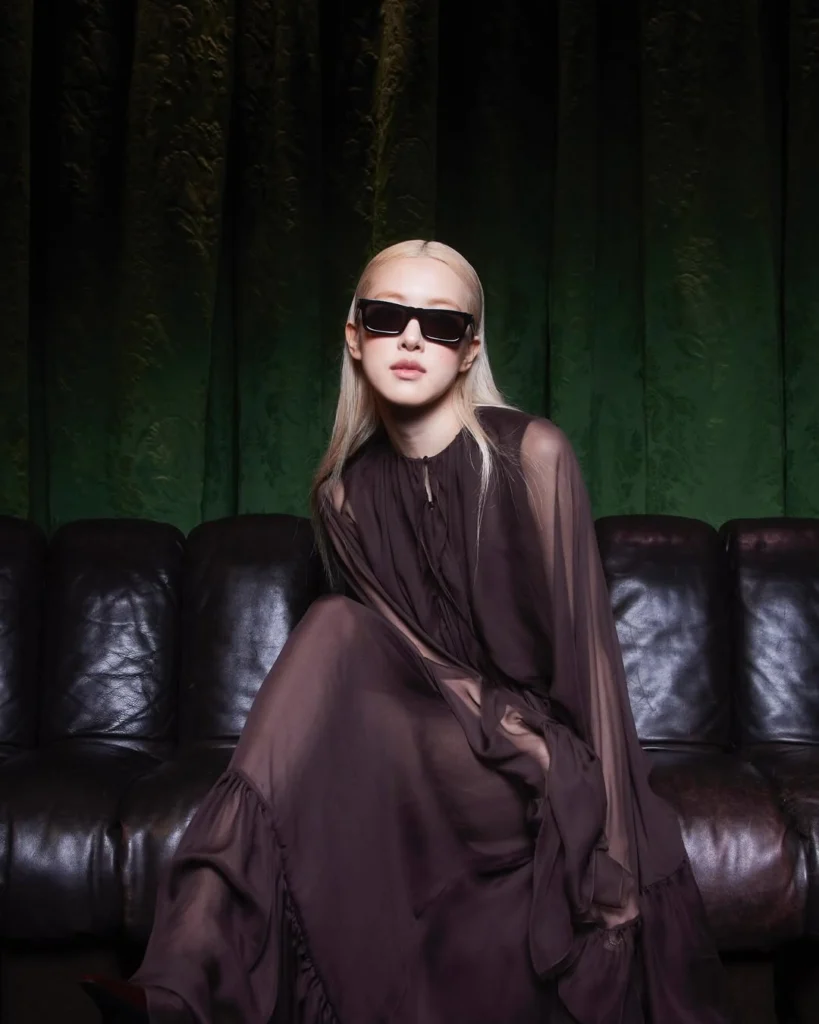
In a candid interview, Rosé shared the immense pressure of maintaining a flawless public image, a hallmark of the K-pop industry. She revealed the challenges of her lack of anonymity, once even attempting to disguise herself as an old woman just to experience the feeling of being unseen. Yet, through her music and public persona, she has found a way to be both a guarded brand and a deeply relatable human. Her solo album, Rosie, delves into personal stories and emotions, allowing her to connect with fans on a more intimate level.
Rosé’s story is a modern-day fairy tale, but one grounded in the realities of a bicultural existence. It is a narrative of a girl who, at her father’s prompting, took a chance and found herself on the global stage. Her journey from an unassuming kid in Melbourne to a world-renowned superstar is a testament to her immense talent, unwavering work ethic, and, most importantly, the rich cultural mosaic that defines her. She is not just a singer; she is an artist who has woven her two worlds together, creating a beautiful, resonant tapestry that inspires people across the globe to embrace their own unique stories.
